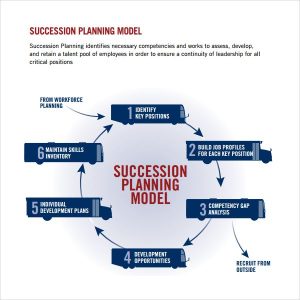
Human Resources (HR) compliance and regulations play a crucial role in ensuring that organizations adhere to legal requirements and maintain ethical standards in their employment practices. Compliance refers to the effort made by companies to obey laws, regulations, and guidelines established by governmental entities, while regulations are specific rules or provisions issued by these entities to enforce compliance.
The Importance of HR Compliance
HR compliance is essential for several reasons. Firstly, it helps protect organizations from costly legal actions and penalties. Failure to comply with regulations can result in fines, legal disputes, or damage to a company’s reputation. Secondly, compliance ensures fair treatment of employees, preventing discrimination, harassment, or other unethical practices. Compliance also supports equal employment opportunities, diversity, and inclusion within the workforce.
Key HR Compliance Areas
Several key areas require HR compliance measures:
Employment Standards
Employment standards encompass regulations related to wages, working hours, vacation entitlements, and employee benefits. Employers must comply with minimum wage requirements, pay overtime rates, provide rest breaks, and adhere to maximum working hours. Failure to comply may result in penalties and legal consequences.
Workplace Safety
Workplace safety regulations are crucial to ensure the well-being of employees. Employers must provide a safe and healthy work environment, conduct risk assessments, provide training, and implement safety protocols. Compliance with safety standards reduces the risk of accidents, injuries, and potential liability.
Equal Employment Opportunities (EEO)
EEO regulations focus on preventing discrimination in the workplace. Employers must comply with laws prohibiting discrimination based on factors such as race, gender, ethnicity, religion, disability, or age. Companies are required to provide equal opportunities during recruitment, promotions, and training, and to foster inclusive work environments.
Privacy and Data Protection
With increasing reliance on technology, data privacy and protection have become critical compliance areas. Employers must handle employee data responsibly, adhere to data protection laws, and safeguard sensitive information. Compliance with privacy regulations ensures that employees’ personal data remains confidential and protected.
HR Compliance Challenges
Despite the importance of HR compliance, organizations often face several challenges:
Changing Laws and Regulations
Laws and regulations related to HR are subject to frequent changes, making it challenging for organizations to stay updated. HR professionals must regularly monitor legal updates and adapt policies and practices accordingly to ensure ongoing compliance.
Complexity and Variability
HR compliance requirements can be complex and vary across jurisdictions and industries. This complexity increases the difficulty of understanding and implementing the necessary measures. Organizations may need to seek legal counsel or hire compliance experts to navigate these complexities effectively.
Internal Compliance Awareness
Ensuring internal compliance awareness and understanding among employees and managers can be a challenge. HR departments must invest in training programs and communication strategies to educate employees about compliance requirements, ethical practices, and the consequences of noncompliance.
The Role of HR Professionals
HR professionals play a vital role in managing compliance and regulations within organizations:
Policies and Procedures
HR professionals develop and implement policies and procedures to ensure compliance with applicable laws and regulations. They create employee handbooks, code of conduct, and policies addressing workplace safety, non-discrimination, privacy, and confidentiality.
Training and Education
HR professionals provide training and educational programs to employees and managers regarding compliance requirements and ethical practices. This ensures that everyone understands their roles and responsibilities in maintaining compliance.
Monitoring and Auditing
HR professionals regularly monitor and audit HR practices and policies to identify areas of noncompliance and implement corrective actions. They conduct internal audits, review documentation, and analyze data to ensure ongoing adherence to regulations.
External Collaboration
HR professionals collaborate with legal experts, government agencies, and industry associations to stay informed about changes in regulations and obtain guidance. They participate in conferences and seminars to learn about emerging trends and best practices in HR compliance.
Conclusion
HR compliance and regulations are crucial for organizations to operate ethically, avoid legal consequences, and foster fair and inclusive workplaces. By understanding the key areas of compliance, anticipating challenges, and investing in HR professionals, organizations can navigate the complex landscape of regulations effectively and ensure compliance in their HR practices.

